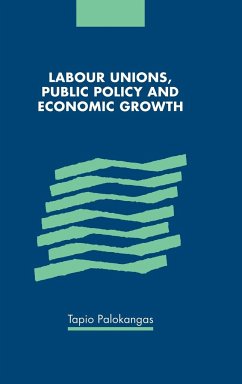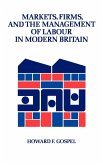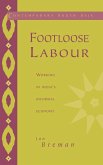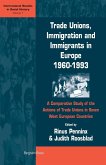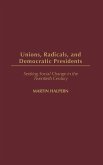Collective bargaining is still the main vehicle for labour worldwide to negotiate wages, benefits, retirement policies, training and other terms of working with management in both the public and private sectors. Labour economists have long been active in modelling the relations between collective bargaining agreements, labour markets, and social welfare conditions. This book presents a new theoretical model of unions which offers a unified treatment of the centralization of bargaining, the credibility of labour contracts, the unionization of labour markets and the relative bargaining power of the union. Part I of the book develops the microfoundations of bargaining and examines collective bargaining interacting with public policy, investment and growth, and international trade and specialization. In conclusion Professor Palokangas challenges the commonly held view that collective bargaining has a negative impact on economics welfare, and argues that with the existence of market failure, collective bargaining can be welfare enhancing.
Table of contents:
Preface; 1. Basic concept of game theory; 2. Collective bargaining without investment; 3. The use of corrective taxes and subsidies; 4. Taxation and production efficiency; 5. Credibility in collective bargaining; 6. Monopoly unions and sluggish investment; 7. Ordinary wages vs. profit-sharing; 8. Unions and economic growth; 9. Unions and international specialization; References.
Presents a new theoretical model of union bargaining. It challenges the prevailing view that collective bargaining has a negative impact on welfare and argues that given the existence of market failure, collective bargaining can enhance welfare. For scholars and students in labour economics, public economics, game theory and international economics.
A new theoretical model of union bargaining, challenging the view that collective bargaining always has a negative impact on welfare.
Table of contents:
Preface; 1. Basic concept of game theory; 2. Collective bargaining without investment; 3. The use of corrective taxes and subsidies; 4. Taxation and production efficiency; 5. Credibility in collective bargaining; 6. Monopoly unions and sluggish investment; 7. Ordinary wages vs. profit-sharing; 8. Unions and economic growth; 9. Unions and international specialization; References.
Presents a new theoretical model of union bargaining. It challenges the prevailing view that collective bargaining has a negative impact on welfare and argues that given the existence of market failure, collective bargaining can enhance welfare. For scholars and students in labour economics, public economics, game theory and international economics.
A new theoretical model of union bargaining, challenging the view that collective bargaining always has a negative impact on welfare.

